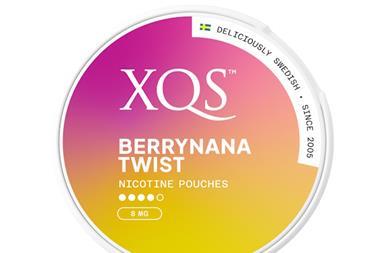The twists and turns in the battle to keep cigarettes over the counter and under the control of the only responsible supply chain just keep on coming.
Six months ago local stores in England were burdened with footing the bill for covering their gantries, as demanded under Labour’s Health Bill. Many believed that the thinking behind the display ban – that children will not smoke if they don’t see cigarettes in shops – was woolly at best, and that hiding a legally sold product behind closed doors would merely encourage consumers to seek out an illegal alternative one.
Now those worst-laid plans are under attack again, with a series of legal challenges from the tobacco manufacturers and indications from the other political parties that they are concerned about the quality of evidence used to justify the ban.
BAT, JTI, Phillip Morris and Imperial Tobacco have each made an application for a Judicial Review of the powers to ban tobacco displays in the Health Act 2009. These challenge the way that a public body has made a decision, rather than the conclusion itself, and involve a two-phase process which could take up to six months.
Each of the companies’ arguments is slightly different. While Imperial Tobacco puts forward the view that the legislation is “unreasonable and disproportionate” and does not comply with the last government’s own Better Regulation principles, BAT argues that it discriminates against smaller players and new entrants in the market, as they are not able to publicise their brands to potential consumers. This is a breach of European competition law, it says. JTI takes the line supported by many retailers that the legislation will fuel the illicit market.
The decision to go to the courts is backed by Mike Penning MP, who was shadow health minister before the election and is tipped for high office in the new government. “I am not a lawyer but I have always been concerned whether the legislation on this is legal. Therefore a challenge by way of a Judicial Review seems a sensible thing to do,” he said.
The Liberal Democrats have also declared their reservations about the ban. John Thurso MP recently said: “Any proposals should be proportionate to ensure that burdens on retailers are limited and should reflect the cost and difficulty of re-fitting.”
With the Conservatives having committed to a review of the policy, the Lib Dem’s misgivings, and a large proportion of the Labour MPs who voted for the ban no longer in the Commons, the legislation suddenly looks like a prime target for revision once Parliament resumes.
However, the uncertain political position means there are plenty of other issue to tackle in the next few months.
What we can confidently call for is a delay of the compliance deadline of 2013 for the majority of c-stores. That’s the initial thrust of the Association of Convenience Stores’ argument to the new administration. Chief executive James Lowman says: “Local shops will suffer most from the confusion created by the legal uncertainty. They will have to put their compliance plans on hold.
“The implementation dates are now wholly unrealistic and must be pushed back by at least a year.”
Given the strength of opposition to the legislation, it could be that a year’s grace is the least tobacco retailers should settle for.
What you can do:
● Meet your MP – it’s a clean slate for them, so get in their ear as soon as you can. Don’t talk about lost sales; tell them about the costs of compliance, the principles of evidence-based regulation and the £3.5bn in annual revenue the Treasury loses to a booming black market
● Keep up the good work – ensure your staff are 100% watertight on demanding proof of age and challenging adults they believe are buying for children
● Consult the customers – you’re here to serve them, so take the temperature of the local council, residents and pressure groups, and if necessary make the case for a controlled tobacco supply chain through responsible retailers.
Six months ago local stores in England were burdened with footing the bill for covering their gantries, as demanded under Labour’s Health Bill. Many believed that the thinking behind the display ban – that children will not smoke if they don’t see cigarettes in shops – was woolly at best, and that hiding a legally sold product behind closed doors would merely encourage consumers to seek out an illegal alternative one.
Now those worst-laid plans are under attack again, with a series of legal challenges from the tobacco manufacturers and indications from the other political parties that they are concerned about the quality of evidence used to justify the ban.
BAT, JTI, Phillip Morris and Imperial Tobacco have each made an application for a Judicial Review of the powers to ban tobacco displays in the Health Act 2009. These challenge the way that a public body has made a decision, rather than the conclusion itself, and involve a two-phase process which could take up to six months.
Each of the companies’ arguments is slightly different. While Imperial Tobacco puts forward the view that the legislation is “unreasonable and disproportionate” and does not comply with the last government’s own Better Regulation principles, BAT argues that it discriminates against smaller players and new entrants in the market, as they are not able to publicise their brands to potential consumers. This is a breach of European competition law, it says. JTI takes the line supported by many retailers that the legislation will fuel the illicit market.
The decision to go to the courts is backed by Mike Penning MP, who was shadow health minister before the election and is tipped for high office in the new government. “I am not a lawyer but I have always been concerned whether the legislation on this is legal. Therefore a challenge by way of a Judicial Review seems a sensible thing to do,” he said.
The Liberal Democrats have also declared their reservations about the ban. John Thurso MP recently said: “Any proposals should be proportionate to ensure that burdens on retailers are limited and should reflect the cost and difficulty of re-fitting.”
With the Conservatives having committed to a review of the policy, the Lib Dem’s misgivings, and a large proportion of the Labour MPs who voted for the ban no longer in the Commons, the legislation suddenly looks like a prime target for revision once Parliament resumes.
However, the uncertain political position means there are plenty of other issue to tackle in the next few months.
What we can confidently call for is a delay of the compliance deadline of 2013 for the majority of c-stores. That’s the initial thrust of the Association of Convenience Stores’ argument to the new administration. Chief executive James Lowman says: “Local shops will suffer most from the confusion created by the legal uncertainty. They will have to put their compliance plans on hold.
“The implementation dates are now wholly unrealistic and must be pushed back by at least a year.”
Given the strength of opposition to the legislation, it could be that a year’s grace is the least tobacco retailers should settle for.
What you can do:
● Meet your MP – it’s a clean slate for them, so get in their ear as soon as you can. Don’t talk about lost sales; tell them about the costs of compliance, the principles of evidence-based regulation and the £3.5bn in annual revenue the Treasury loses to a booming black market
● Keep up the good work – ensure your staff are 100% watertight on demanding proof of age and challenging adults they believe are buying for children
● Consult the customers – you’re here to serve them, so take the temperature of the local council, residents and pressure groups, and if necessary make the case for a controlled tobacco supply chain through responsible retailers.











![WG-4003[58]](https://d2dyh47stel7w4.cloudfront.net/Pictures/274x183/4/5/1/353451_wg400358_6083.jpg)
















No comments yet